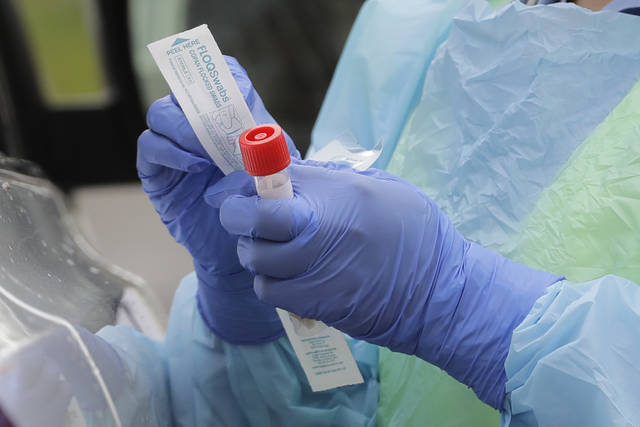Allegheny County health officials on Friday reported 10 new covid-19 cases and no new deaths.
County data show that of the 2,065 cases, 1,933 are confirmed and 132 are probable. Of the country’s 173 deaths, 161 are confirmed and 12 are probable.
All deaths occurred in people between the ages of 42 and 103, with 84 being the median age, according to the county.
Health officials on Friday also launched an expanded covid-19 reporting dashboard that includes more information about the race and ethnicity of people who have contracted the virus.
The data show that black people in Allegheny County are hospitalized and dying at rates higher than their population, a statement from Allegheny County Health Department Director Dr. Debra Bogen said.
“The data show that while we’re doing a good job at getting testing to the black community, the pandemic is tragically taking a larger toll on this community,” Bogen said. “The causes of this significant health disparity are likely many, including higher rates of underlying health conditions linked to poverty, physical environment, and limited access to medical care; higher exposure rates to the virus due to not being able to work from home or from working in close contact with others; a greater likelihood of living in crowded homes, and other factors. These are health equity concerns we must continue to address in earnest.”
Black people make up 13% of the county’s population, and 20% of covid-19 tests have been among black people.
Of the 2,065 cases in Allegheny County, 27% are among black residents.
A total of 355 covid-19 patients in Allegheny County have been hospitalized, according to county data.
Of that total, 31% of patients were black. One in five deaths in the county were a black person.
Data collected by the county early in the pandemic showed fewer covid-19 cases in predominantly black neighborhoods in Pittsburgh and throughout the county.
Since then, county officials have worked with health care providers to increase the number of testing locations and to improve data collection and reporting, particularly related to race and ethnicity.
Race data is now available for about 75% of people tested for covid-19, and ethnicity data is now available for about 55% of people tested.
Data from cities across the country, including Detroit, Chicago, Milwaukee, New Orleans and New York, show that black Americans have died from complications related to the coronavirus at a higher rate.








